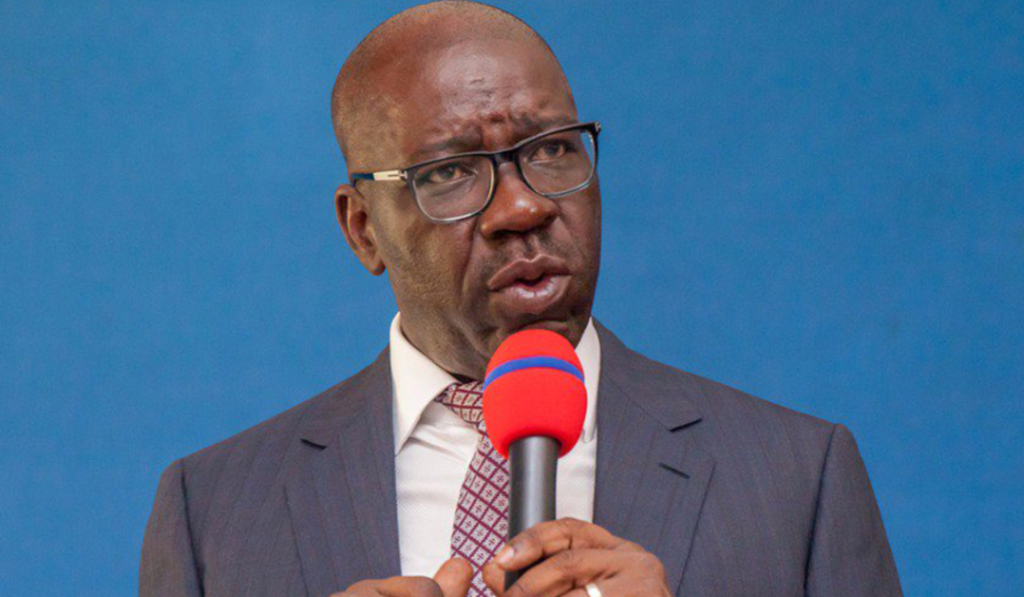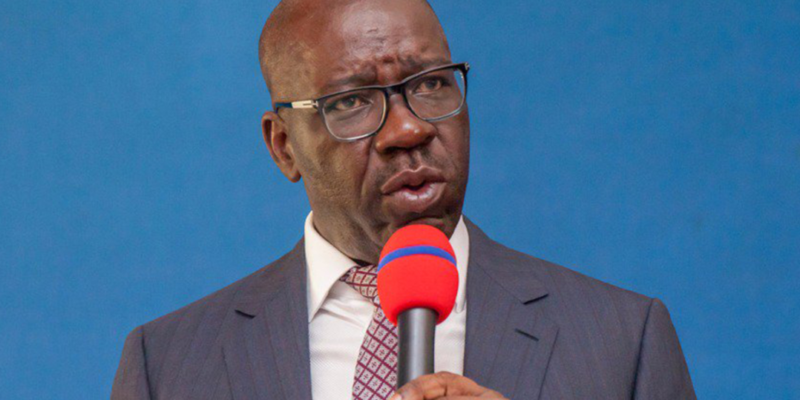
The immediate past administration of Governor Godwin Obaseki has left Edo State with a significant contractual debt burden of approximately ₦200 billion, primarily stemming from commitments to contractors who were only partially mobilized. This revelation was made by Ernest Umakhikhe, Chairman of the Assets Verification Committee, during a recent press briefing.
The committee, established by Governor Monday Okpebholo to investigate the previous administration’s activities, unveiled a series of concerning findings. Speaking at the conference, Umakhikhe highlighted the pressing need for strategic action: “There are huge outstanding commitments in respect of road infrastructure. No matter how indecent some of our findings are, the government has to explore the dry season to make an appreciable intervention in road construction,” he stated.
He further disclosed that most ongoing projects were awarded in 2024, leaving the new government to manage a staggering debt of approximately ₦200 billion. Some contractors admitted that mobilization fees were allegedly paid back to government officials, compounding the financial mismanagement.
The committee also raised questions about the Radisson Hotel project. Despite the Edo State Government sourcing over ₦17.5 billion from the stock market and making an initial payment of ₦2 billion for land acquisition, the project’s ownership was transferred shortly before the exit of the Obaseki administration. This transition left Edo State as a minority stakeholder with just 20% equity.
In a similar vein, the Museum of West Africa Arts (MOWAA) was criticized for its lack of alignment with state interests. Although the government contributed ₦3.8 billion to the project, it holds no equity stake, as MOWAA operates as an independent private trust on government land. The Ministry of Arts, Culture, and Tourism reportedly has minimal oversight of the initiative.
The committee also revealed that the previous administration committed over ₦5 billion to a cybersecurity software license for the EdoGov platform, covering the period from 2023 to 2025. Of this, ₦1.7 billion has already been paid.
To mitigate the challenges, the Okpebholo administration plans to prioritize dry-season road construction projects. “The government must act swiftly to ensure good road networks during this period,” Umakhikhe emphasized.
The committee’s investigations are far from over. When it resumes on January 6, 2025, the focus will shift to critical sectors such as housing, education, health, agriculture, and other major state projects. These include the Edo State Oil Palm Programme, the sale of shares in BUA Cement, and the Edo Modular Refinery.
Governor Okpebholo’s administration is poised to make tough decisions to address these revelations and reposition Edo State for sustainable development.

Comments